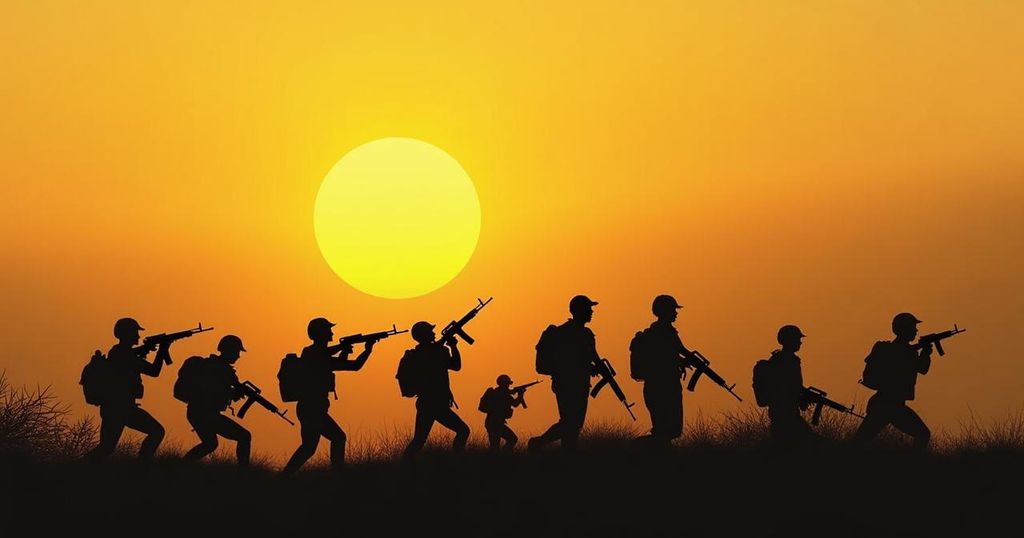Hezbollah denies allegations of Israeli ground troop incursions into southern Lebanon, claiming responsibility for recent rocket attacks targeting Israeli military sites. Prime Minister Najib Mikati appeals for international humanitarian assistance to address the crisis affecting approximately one million displaced civilians in Lebanon. Swiss Air and Lufthansa have suspended flights to and from Beirut and Tel Aviv owing to safety concerns, while France prepares to facilitate potential evacuations of its nationals.
Hezbollah has firmly denied any claims regarding the incursion of Israeli ground troops into southern Lebanon. In a recent declaration, the Lebanese militia reported launching a series of “Fadi-4” rockets targeting the Glilot base in Tel Aviv, which serves as the command center for the Israeli military intelligence Unit 8200. Furthermore, Hezbollah mentioned conducting an assault on the Mossad headquarters situated in the outskirts of Tel Aviv, as stated in their communication via Telegram. In response, the Israeli military announced intercepting several rockets launched from Lebanon. This escalation has prompted Swiss Air to extend its suspension of flights to Beirut and Tel Aviv, aligning with the earlier decisions made by its parent company, Lufthansa, which has also suspended operations to these destinations through November 30 and October 31, respectively. Recognizing the urgent humanitarian crisis stemming from the conflict, Prime Minister Najib Mikati of Lebanon, alongside the United Nations humanitarian coordinator for the region, has initiated a flash appeal for $426 million to provide immediate relief for civilians affected by the ongoing violence. During discussions with UN representatives, Najib Mikati stressed that approximately one million people have been displaced due to the Israeli military actions. Meanwhile, France is preparing for possible evacuations of foreign nationals from Lebanon, dispatching a helicopter carrier to the Eastern Mediterranean region. The French military conveyed that the arrival of their Dixmude helicopter carrier is intended to facilitate the safe extraction of their citizens if the conflict escalates. Israeli military officials reiterated that any ground operations in southern Lebanon would focus exclusively on Hezbollah installations viewed as a threat to Israel and would not constitute aggression against the Lebanese populace. Rear Admiral Daniel Hagari, spokesperson for the Israeli army, stated, “Hezbollah turned Lebanese villages next to Israeli villages into military bases ready for an attack on Israel.” The situation remains precarious, with ongoing reports of violence in the West Bank, including the recent fatal shooting incidents involving Israeli troops in Nablus and the targeting of Palestinian medical personnel attempting to provide aid.
The conflict between Israel and Hezbollah has escalated significantly, marking one of the most troubling periods for Lebanon in recent history. The Lebanese group Hezbollah, operating with considerable military capability, has launched retaliatory attacks against Israeli military installations, further intensifying tensions in the region. Prime Minister Najib Mikati’s urgent call for international aid reflects a humanitarian crisis whereby a substantial number of civilians have been displaced due to heightened conflict. The response from international airlines, notably Swiss Air and Lufthansa, illustrates the prevailing atmosphere of uncertainty and safety concerns affecting travel in the region. As military operations unfold, the potential for increased casualties and displacement raises alarms regarding the humanitarian implications of this ongoing conflict.
In summary, the current situation between Hezbollah and Israel showcases a multi-faceted crisis involving military confrontations and significant humanitarian challenges. With Hezbollah’s claims of retaliatory strikes and the Israeli military’s focus on targeted operations, the conflict escalates further. Prime Minister Najib Mikati’s appeal for international aid underscores the humanitarian crisis faced by displaced civilians, while international responses to the conflict, including airline suspensions and military readiness for evacuations, reflect the gravity of the situation. The developments indicate a critical need for diplomatic efforts to address the underlying tensions and provide necessary support to the affected populations.
Original Source: www.aljazeera.com






